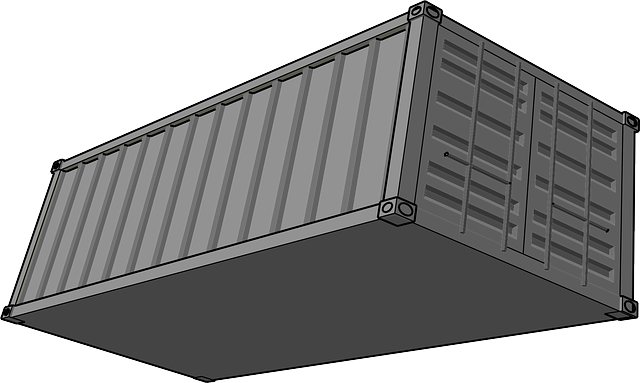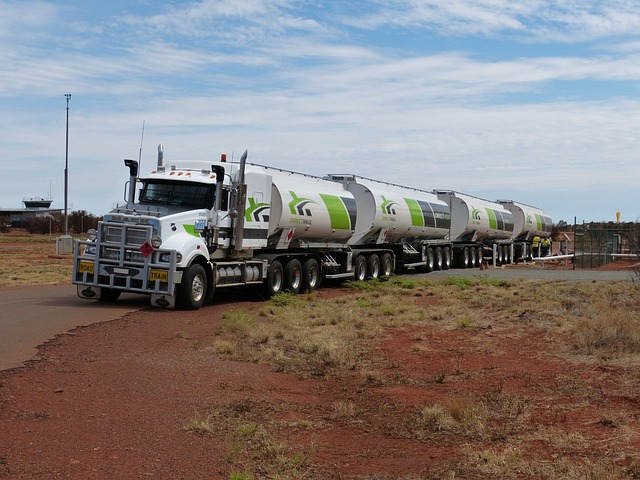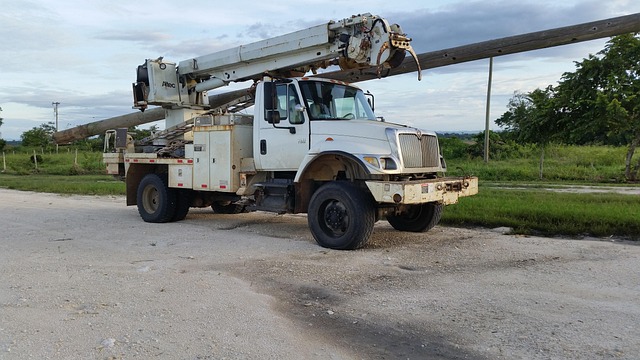Commercial vehicle coverage is a vital risk management tool for businesses relying on trucks, offering specialized protection against unique risks like liability claims, physical damage, cargo loss, and business interruption. Without adequate insurance, companies face financial disasters, reputational damage, and disruptions in supply chains. A comprehensive truck insurance policy includes liability, physical damage, cargo protection, and business interruption coverage, ensuring operational efficiency, financial stability, and business continuity. Strategic management involves regular policy reviews, technology-driven risk assessment, and partnerships with specialized insurers to address specific operational needs.
In today’s dynamic business landscape, ensuring uninterrupted operations is paramount. For companies relying on truck fleets, having the right commercial vehicle coverage can mean the difference between staying afloat and facing significant disruptions. This article guides you through essential aspects of commercial vehicle coverage, highlighting its critical role in mitigating risks and fostering business continuity. We’ll explore common threats, key policy components, and strategies to optimize your insurance management.
- Understanding Commercial Vehicle Coverage: What It Covers and Why It Matters
- Risks Faced by Businesses with Uninsured or Underinsured Truck Operations
- Key Components of a Comprehensive Truck Insurance Policy
- Strategies to Enhance Business Continuity Through Effective Truck Insurance Management
Understanding Commercial Vehicle Coverage: What It Covers and Why It Matters

Commercial vehicle coverage is a crucial aspect of business continuity for companies relying on trucks for their operations. This type of insurance provides financial protection against potential risks and losses specifically associated with commercial vehicles. It goes beyond standard auto insurance, catering to the unique challenges faced by fleet owners and drivers.
Understanding what commercial vehicle coverage entails is essential for businesses to make informed decisions regarding risk management. It typically includes liability protection, covering damages caused to others in an accident, as well as physical damage to the truck itself. Additionally, it may offer compensation for business interruption, cargo loss or damage, and legal fees related to accidents. By ensuring this comprehensive coverage, companies can safeguard their financial stability and maintain uninterrupted service, which is vital for long-term success and customer satisfaction.
Risks Faced by Businesses with Uninsured or Underinsured Truck Operations

Businesses operating uninsured or underinsured truck fleets face significant risks that can jeopardize their continuity. Without adequate commercial vehicle coverage, operators are exposed to potential financial disasters resulting from accidents, property damage, and legal liabilities. The costs associated with these incidents can be substantial, including medical expenses, repair bills, and legal settlements. Moreover, the absence of insurance may lead to a loss of business reputation, as customers prefer partners who prioritize risk management.
Uninsured or underinsured operations also increase the vulnerability of supply chains. Delays caused by accidents or legal disputes can disrupt production processes and impact customer satisfaction. Commercial vehicle coverage ensures that businesses are protected against such disruptions, enabling them to maintain operational efficiency and meet customer demands consistently. By investing in comprehensive insurance plans, companies can safeguard their financial health, protect their reputation, and ensure business continuity in an unpredictable environment.
Key Components of a Comprehensive Truck Insurance Policy

A comprehensive truck insurance policy is essential for any business relying on commercial vehicles. Key components include liability coverage, which protects against claims arising from accidents or damage caused to third parties or their property. This is crucial as it shields businesses from significant financial losses and legal repercussions. Additionally, physical damage coverage is vital, ensuring repairs or replacement of the insured truck in case of theft, vandalism, or accidents.
Commercial vehicle coverage also encompasses cargo protection, safeguarding the value of goods being transported. This component is particularly important for businesses dealing with expensive or perishable items. Further, business interruption coverage compensates for lost income and continuing expenses during periods when a covered event disrupts normal operations, ensuring the stability of the enterprise. Finally, personal injury protection (PIP) and medical payments cover medical expenses and lost wages for drivers injured in accidents, demonstrating a commitment to their well-being.
Strategies to Enhance Business Continuity Through Effective Truck Insurance Management

In today’s dynamic business landscape, ensuring uninterrupted operations is paramount, especially for industries reliant on trucking and logistics. Effective truck insurance management plays a pivotal role in enhancing business continuity by providing comprehensive commercial vehicle coverage. By carefully selecting insurance policies tailored to specific operational needs, businesses can safeguard their assets, mitigate financial risks, and minimize downtime in the event of unforeseen circumstances like accidents, natural disasters, or mechanical failures.
Strategic insurance planning involves regular reviews of policy limitations and coverages to align with evolving business demands. Staying proactive includes investing in technology to track vehicle performance and driver behavior, enabling better risk assessment and claims management. Moreover, fostering partnerships with reputable insurance providers experienced in the nuances of commercial trucking ensures access to specialized policies that address unique risks, such as cargo loss or liability associated with diverse shipping scenarios. Such proactivity not only bolsters financial resilience but also enhances the reputation of businesses, fostering confidence among stakeholders and customers alike.
Ensuring business continuity in the face of potential risks is paramount for any trucking operation. By understanding and leveraging the right truck insurance, businesses can safeguard their assets, mitigate financial exposure from uninsured or underinsured drivers, and maintain operational stability. A comprehensive policy that incorporates liability, cargo protection, and mechanical breakdowns coverage is essential. Effective management of truck insurance involves regular review and adjustment to changing business needs and risk profiles. Embracing these strategies ensures that your trucking business remains resilient and ready to navigate any challenges, allowing you to focus on growth and success while leaving worries about unexpected events behind.
